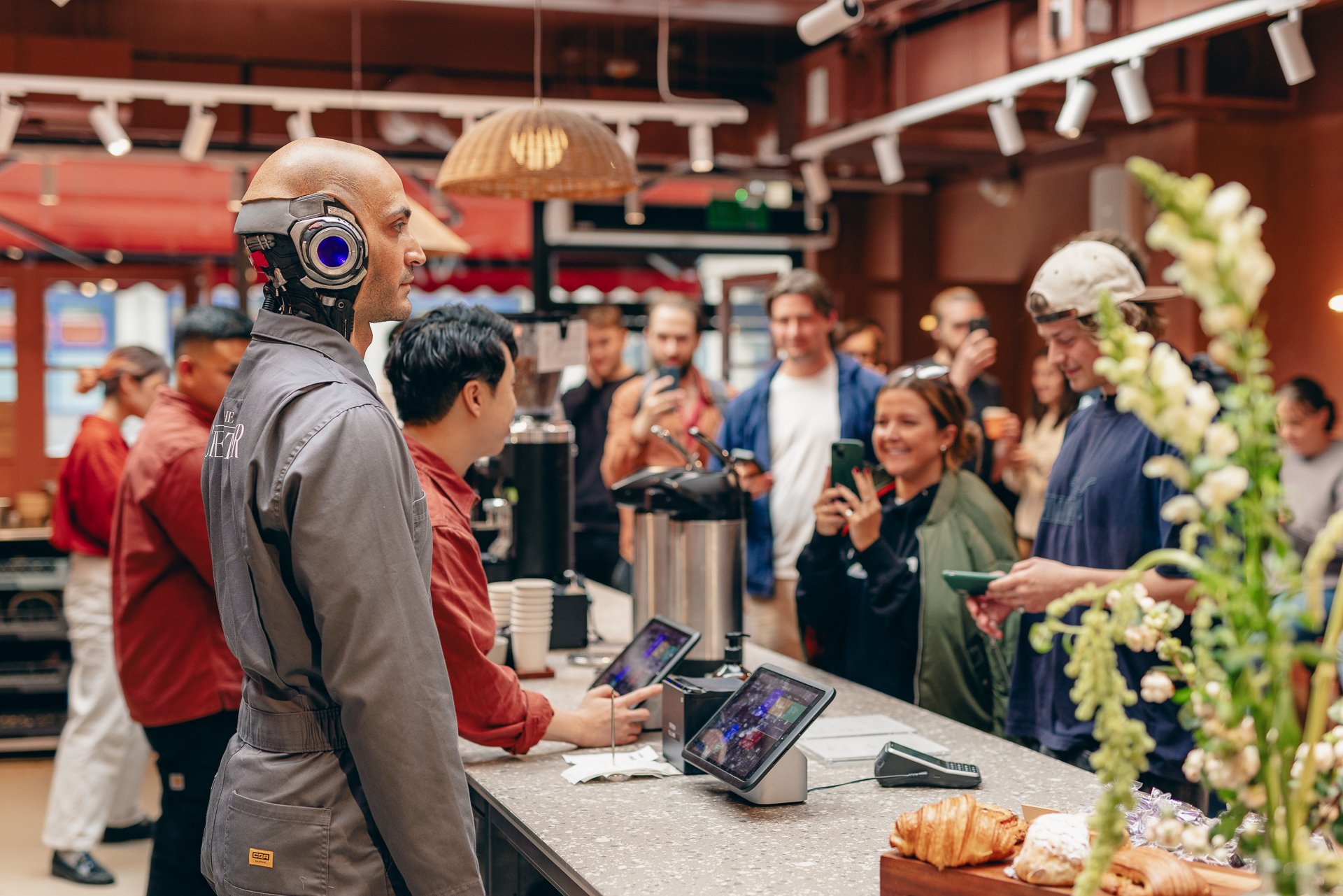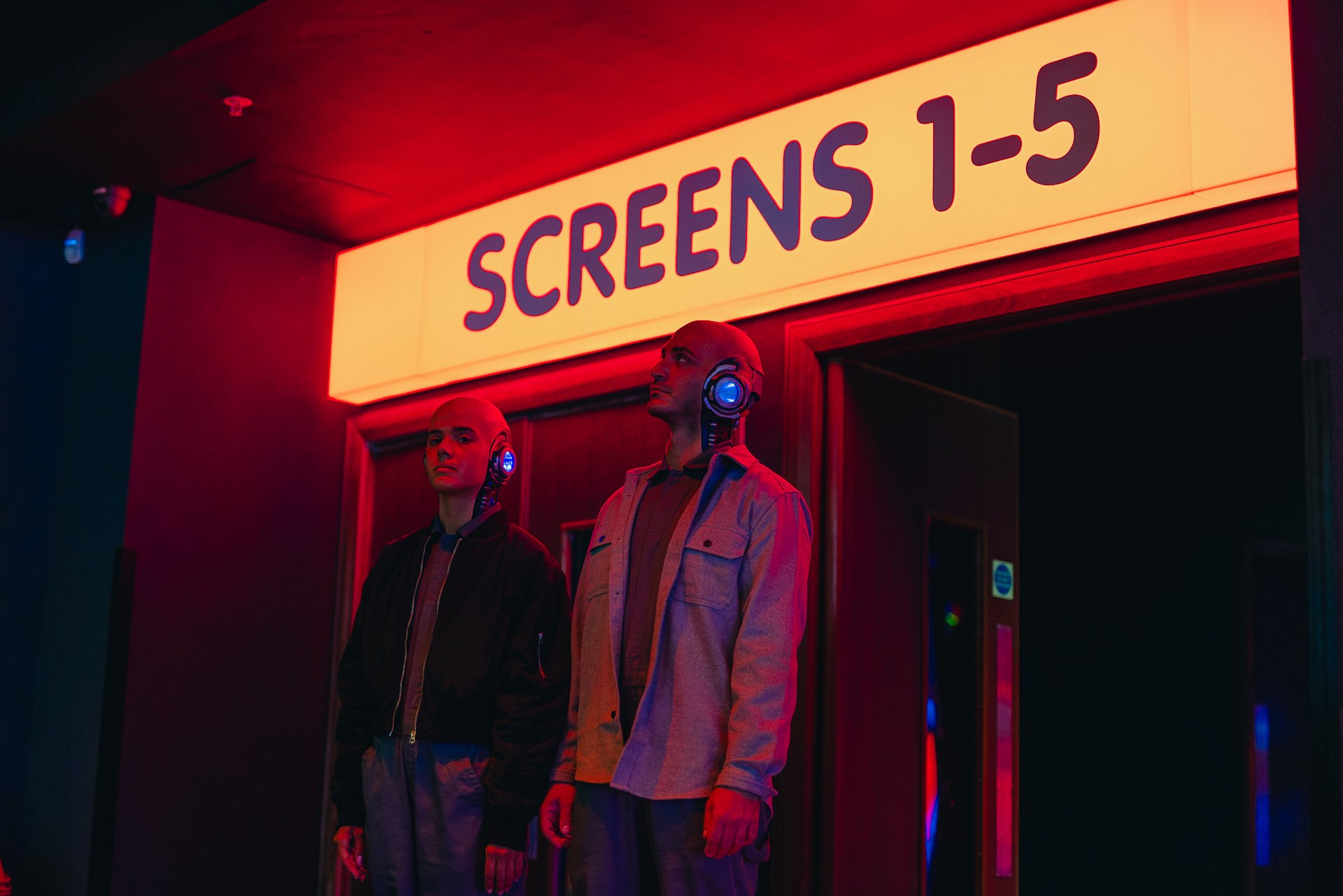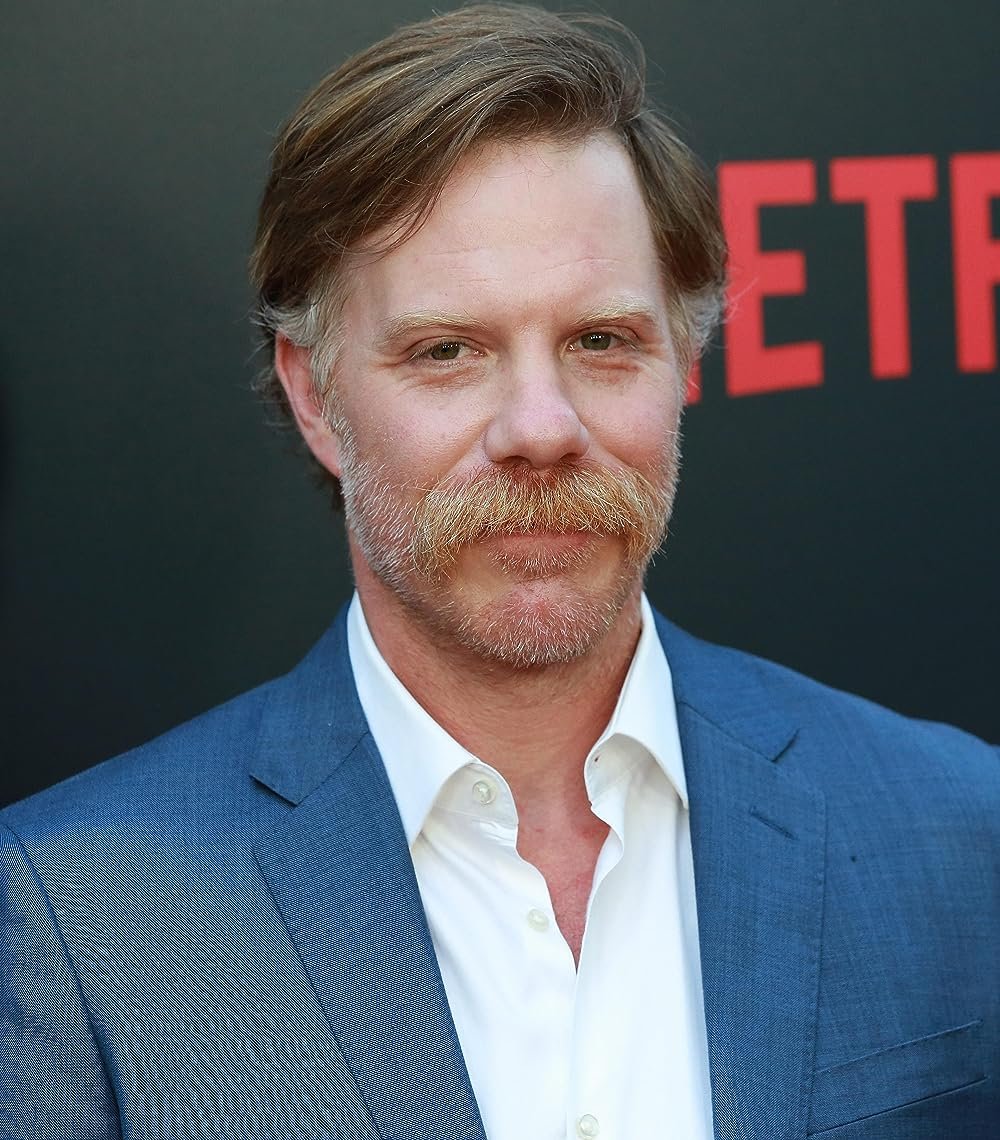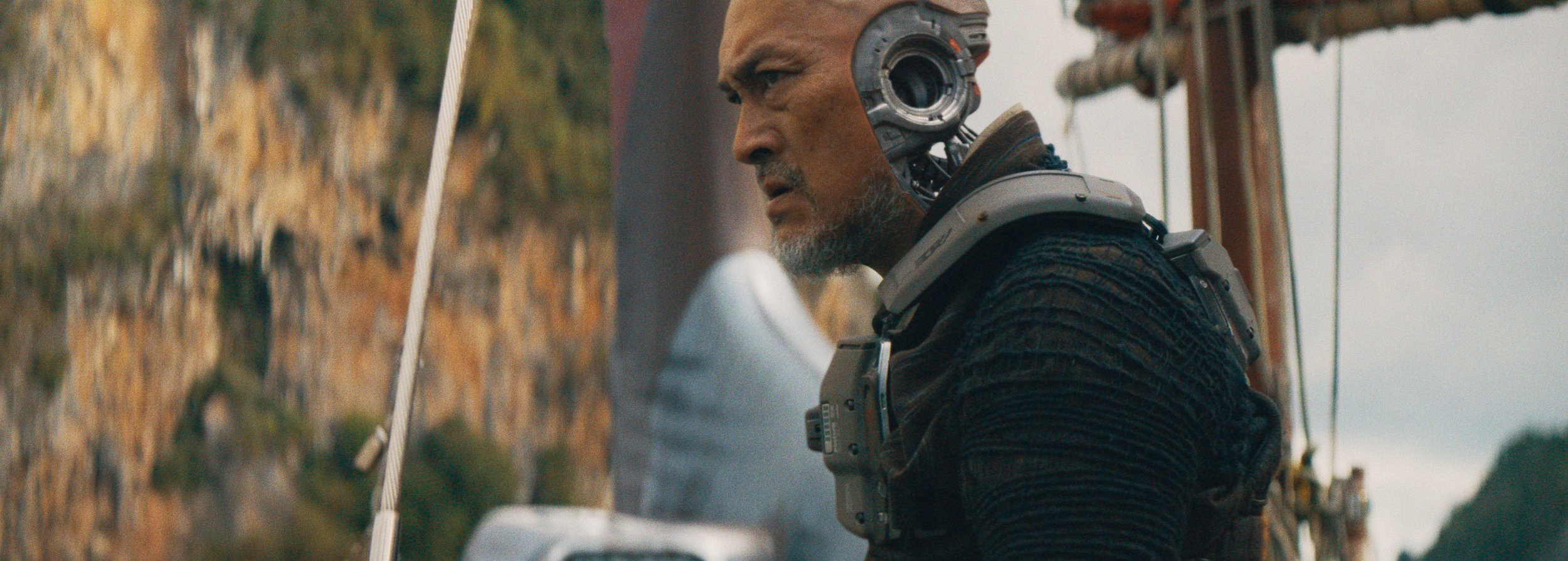Breaking Down ‘The Creator’ Movie
Photo via 20th Century Studios
On September 29, 2023, 20th Century Studios (along with New Regency and Entertainment One) released 'The Creator' to audiences in the United States. The movie, set against a futuristic backdrop of tensions between humans and artificial intelligence, grossed an estimated $32.3 million in its opening weekend. To date, it has accumulated $91 million in box office returns, surpassing its production budget of $80 million. Directed by Gareth Edwards and backed by a distinguished cast, this article offers a detailed examination of 'The Creator,' its production, and intriguing themes. You’ll get to see exclusive interviews with the cast and crew, clips from the movie and look at the film's global premiere events.
*All Media in this article is provided by 20th Century Studios
‘The Creator’ Trailers
First, let’s check out the the official trailers for ‘The Creator’, courtesy of 20th Century Studios.
Set in the year 2065, the below videos show glimpses into a world where humanity's relationship with artificial intelligence takes center stage. These previews combine suspense, action, and emotion, showcasing key plot points (without giving away the full narrative, of course!). Watch them and continue reading for more ‘The Creator’ goodness!
Video via 20th Century Studios
Video via 20th Century Studios
Video via 20th Century Studios
‘The Creator Plot Synopsis
Photo via Disney +
'The Creator' is set in the year 2065 and shows a future where humanity faces off against the rising forces of artificial intelligence. The film follows Joshua, portrayed by John David Washington, an ex-special forces agent who's plunged into deep sorrow after the loss of his wife, Maya, played by Gemma Chan.
Joshua's expertise catches attention, and he is soon enlisted for a critical mission: to locate and eliminate the Creator, a mysterious figure behind advanced AI and the architect of a weapon with the potential to obliterate not just the ongoing war, but humanity as a whole.
As Joshua and his team of top-tier operatives tread deep into AI-controlled zones, they stumble upon a staggering revelation. The weapon they've been tasked to annihilate isn't a mere tool of destruction; it's an AI manifested in the form of a young child.
Directed by the acclaimed Gareth Edwards, 'The Creator' is built on a screenplay penned by Edwards and Chris Weitz. The production saw a collaboration of talents, with Edwards, Kiri Hart, Jim Spencer, and Arnon Milchan steering the production wheel. The film's visionary undertone was bolstered by its executive producers: Yariv Milchan, Michael Schaefer, Natalie Lehmann, Nick Meyer, and Zev Foreman.
‘The Creator’ Cast Breakdown
John David Washington - “Joshua”
Photo by George Pimentel - © 2018 George Pimentel - Image courtesy gettyimages.com via IMDB
Gemma Chan - “Maya”
Photo Credit: Getty Images via IMDB
Madeleine Yuna Voyles - “Alphie”
Photo via IMDB
Photos: AI Simulant Activation in London
All images ©Disney
Allison Janney - “Colonel Howell”
Photo by Jeff Vespa - © 2014 Jeff Vespa - Image courtesy gettyimages.com via IMDB
Ken Watanabe - “Harun”
Photo by Steve Granitz - © WireImage.com - Image courtesy WireImage.com via IMDB
Amar Chadha-Patel - “Omni”
Photo by Michael Wharley - © Michael Wharley via IMDB
Sturgill Simpson - “Drew”
Photo via IMDB
Marc Menchaca - “McBride”
Photo by WENN Rights Ltd / Alamy Stock Photo via IMDB
Robbie Tann - “Shipley”
Photo by Storm Santos via IMDB
Ralph Ineson - “General Andrews”
Photo via IMDB
Michael Esper - “Captain Cotton”
Photo by Getty Images via IMDB
Veronica Ngo - “Kami”
Photo via IMDB
Ian Verdun - “Daniels”
Photo by David Christopher Lee
Daniel Ray Rodriguez - “Hardwick”
Rad Pereira - “Lambert”
Photo by Erik Tanner, Getty Images
Syd Skidmore - “Bradbury”
Photo by Matt Kallish
Karen Aldridge - “Dr. Thankey”
Photo via IMDB
Interviews with Cast & Crew
Allison Janney - "Colonel Howell"
Video via 20th Century Studios
Amar Chadha-Patal - "Omni, Satra, Sergeant Bui, Head Monk"
Video via 20th Century Studios
Gareth Edwards - Producer / Director / Writer
Video via 20th Century Studios
Gemma Chan - "Maya"
Video via 20th Century Studios
John David Washington - "Joshua"
Video via 20th Century Studios
Marc Menchaca - "McBride"
Video via 20th Century Studios
Sturgill Simpson - "Drew"
Video via 20th Century Studios
Gareth Edwards - Director/Writer
Video via 20th Century Studios
Video via 20th Century Studios
A Statement from Director/Co-Writer Gareth Edwards
Director Gareth Edwards got candid when offering insight into his filmmaking journey, from childhood inspirations to the challenges of industry dynamics in an official statement to Disney+. Through his narrative, we get a glimpse of his experiences, from working on legendary franchises to pioneering new approaches in movie-making. Here is the full statement where he breaks down his process, aspirations, and the roadblocks he overcame to establish his unique imprint on the cinematic world:
When I grew up, nearly every film at the cinema was an original blockbuster. Not a month went by where another sci-fi classic wouldn’t appear, as if dropped from the heavens by the cinema gods. Films whose imagery and characters would stay with you for decades after, bouncing around your head for the rest of your life.
I can’t remember how old I was when I first saw “Star Wars;” it was kind of always there. It was a semi-religious experience watching that film. The way it married ancient mythology with a far-off technological future, I instantly knew what I wanted to do for the rest of my life… I was going to join the Rebel Alliance and blow up the Death Star.
Then slowly, it started to dawn on me. These things called films were not real. The Rebel Alliance didn’t exist, this whole thing was a big lie called ‘movies.’ So, after much dismay, I eventually decided to do the second-best thing; I would become a liar too, and I would make movies. But wait, how on earth do you become a filmmaker?
I grew up in the middle of England, so Hollywood seemed a million miles away. Then, one day when I was about 12 years old, my dad came home and announced we were all going on a holiday to Asia, and even more excitingly, he was going to buy a video camera to capture the whole trip.
That was it…No one in my family stood a chance. I grabbed that camera the second it arrived, filming every moment as we traveled through the megacities of Hong Kong, Bangkok, the tropical beaches, and the jungles of Thailand. It had a massive impact on me, it was like nothing I’d experienced before. I didn’t understand any of the culture, the signs, advertisements, I felt like a complete outsider. and I loved it.
Movie Stills from ‘The Creator’ Movie
All images ©Disney
By the time I turned 18, I had amassed a collection of VHS short films that paved the way for me to get into film school. I just so happened to be sharing a house with a film student who was studying this very new thing called ‘computer animation.’ This was 1993, and seeing what he could do on his home computer blew my mind. It was clear that this tool was going to democratize filmmaking, or so I thought. If Hollywood didn’t call, it didn’t matter anymore, there would be nothing stopping someone from making an epic sci-fi film from their bedroom.
Hollywood never called. I couldn’t get a directing job, so I got into debt and bought a computer. After spending far too long learning visual effects, I got offered way more computer graphics jobs than any jobs related to filmmaking. I ended up with a reputation at the BBC as ‘this kid who does visual effects from his bedroom’. But I would constantly try and bribe producers I worked with, saying, ’If you let me direct one of your TV shows, I’ll do all the visual effects for free.’
As each year passed, I kept making excuses as to why I couldn’t quit my job just yet. Until finally I just hit a tipping point where the fear of failing was less than the fear of never trying. I knocked on the door of a low-budget film company, showed them my visual effects showreel and short films, and somehow convinced them that the industry was at a tipping point, that you could now make a big-looking movie without lots of money, for whatever reason they believed me…Three months later I was in Central America shooting my first feature film “Monsters.”
We had very little money, but it didn’t matter. It was a sci-fi film and the less control we had, the more real it felt. We traveled throughout Central America and every time we saw an interesting location we would jump out and film a scene; it was incredibly organic and efficient. We shot real people mixed with just two actors, and everything that would normally hold you back became our strength. Turns out, there are loads of advantages to making a movie with no money.
More Movie Stills from ‘The Creator’ Movie
All images ©Disney
The only catch was I had to do all the 250 visual effect shots myself from my bedroom. Using all the new software that promised to democratize filmmaking, I felt like I was racing hundreds of other filmmakers in their bedrooms all over the world to be the first to do this. After several rejections, the film finally got into SXSW, where it was randomly seen by a Hollywood agent who offered to represent me. I was kind of pinching myself, but also by then it strangely didn’t matter it felt like a digital revolution was coming, that anyone could now make films, who needed Hollywood? Until my new agent called me up asking, “Are you a fan of Godzilla?”
Getting to do one of the biggest films of the summer was like being teleported directly to the Super Bowl final. It was as nerve-wracking as it was exciting. But soon it became clear that everything that was easy about making a no-budget film was suddenly hard, if not impossible, on a nobudget film. And everything that was difficult, like creating 250 visual effects shots, was suddenly easy. I wasn’t sure how I felt about this trade. It felt like there was a perfect balance to get the best of both worlds. I had decided I was going to step away from big franchise movies and try and take what I had learned and apply it to very ambitious smaller films, you know, without the pressure of a giant fanbase scrutinizing your every move. That’s when my agent called again, “Do you like ‘Star Wars’?”
It was a dream come true. The chance to play in the universe that had inspired me to become a filmmaker. In a strange way, it felt like ‘the force’ had destined this to happen. Yet, the whole time we were making “Rogue One,” we were always trying to push the process, go back to our roots, and do things differently. Greig Fraser and Industrial Light & Magic were up for pushing the boundaries. Like using giant LED screens instead of green screens to film out of the ship’s windows. Shooting in real locations and augmenting them later in the computer. It felt like everything I had been doing was all leading up to this film. But once you finally get a chance to join the Rebel Alliance and blow up the Death Star, what do you do next? What could possibly top that?
When a film is finally over, your brain can suddenly dump two years’ worth of ideas and images in a heartbeat, like formatting a hard drive. You find yourself suddenly with this massive blank canvas in your mind, completely open to new ideas and storylines; It is one of my favorite moments in my life when you feel like a sponge, and anything is possible.
When “Rogue One” was over, I needed a break. I went on a long road trip with my girlfriend to her parents in Iowa. As we traveled across the Midwest, I watched the endless farmlands scroll by listening to movie soundtracks. When suddenly, there, in the midst of all the tall grass, was this strange factory. I remember it having a Japanese logo on it. I started to wonder what they were building in there. Well, it was Japanese, and I’m a science fiction geek, so my mind went straight to robots. It had to be robots, right? Imagine you were a robot built in that factory, and that’s all you had ever known, then one day something went wrong, and you suddenly found yourself outside in this field for the first time, seeing the world, the sky, what would you think?
It felt like the beginning of a movie. I found it fascinating, and by the time we arrived at my girlfriend’s parent’s house, I had the whole film pretty much worked out in my head. It’s very rare this ever happens. I took it as a good sign, and thought, maybe this should be my next film.
But I hate writing screenplays. It’s like having the worst homework in the world. The only way I can bring myself to do it is to lock myself away in a nice hotel and promise to never leave until the script is finished. I was doing exactly that, in a resort in Thailand, when a director friend of mine 4 (Jordan Vogt-Roberts, who had made “Kong: Skull Island”) was in Vietnam and invited me to join him.
We spent a week traveling across the country and having just been in a creative, screen-writing headspace, my imagination was going wild the entire time. I started envisioning massive futuristic structures rising out of paddy fields, or thinking about fascinating spiritual questions that would come of a Buddhist monk being an AI. I found it captivating, and I got really excited about the idea of something “Blade Runner”-esque being set in Vietnam I was seeing. If I didn’t make that film now, then someone else would beat me to it…I had to do this!”
I truly believe the way you make a film is just as important as the actual idea. It was important to me that we approach this film completely differently, or not do it at all. But trying to convince a major studio to do an original sci-fi epic in this era is very difficult, if not impossible. It was clear our only real hope would lie in making it for a lot less money. It was time to find that holy grail of filmmaking, where we get all the benefits of big and no-budget filmmaking. I contacted the producer of “Monsters” and tried to explain “We aren’t making a low-budget blockbuster; we are making the most ambitious indie movie ever!”
It’s easy to say that kind of thing, but what does it really mean? We explained to the studio that we were going to do everything backward. Normally in a big studio film, you first sit down with artists and design the whole world, then realize you can’t possibly find these locations and must then build giant sets in a studio and shoot everything against a green screen. I didn’t want to do that, so we went about it the other way around. We wanted to shoot in real countries, in real locations, with real people. Then once the film was edited together, that was when I would sit down with the designers and paint over the shots to create the science fiction world on top. It was the total opposite of how you normally do this. The studios were skeptical—would this work? It all sounded a bit of a crazy gamble. So, we set out to prove it.
Under the guise of a location scout, we secretly took cameras and shot a short film with just myself and my producer Jim Spencer. We went to the best locations around the world for each sequence in the film. James Clyne, one of our production designers, painted on top of the shots and fortunately Industrial Light & Magic agreed to add all science fiction on top as part of a test. It was all done incredibly quickly and for way less money than it looked. The studio was blown away, we had the green light and were off making the movie!
Source: Disney
‘The Creator’ Movie Featurettes
Now, let's dive deeper into 'The Creator’ with featurettes that provide an exclusive behind the scenes look into the making of the movie.
‘The Creator’ Movie Featurette: AI: Friend or Foe
Video via 20th Century Studios
‘The Creator’ Movie Featurette: Unlikely Connection
Video via 20th Century Studios
‘The Creator’ Movie Featurette:‘The Creator’ Movie Featurette: Vision
Video via 20th Century Studios
About "The Creator" - A Timely Sci-Fi Thriller Reflecting Modern AI Concerns
In an era where the subject of Artificial Intelligence (AI) sparks heated debates around its potential benefits and pitfalls, the science fiction thriller, "The Creator," takes this narrative head-on. Set in the near future, year 2065, this cinematic piece captures the essence of such discussions in an action-packed and thought-provoking tale.
Director and co-writer Gareth Edwards, renowned for his work on “Rogue One: A Star Wars Story” and “Godzilla,” comments on the significance of the movie's timing. He says, “The timing of this film is surreal. Even though we’ve been developing this movie for years, it’s opening at a fascinating time when our world is wrestling with a lot of the issues and questions we wanted to address with the film—what it means to be human, whether AI can be conscious, questions of good and evil among AI and among people. I really think that exploring these questions is what sci-fi does best.”
Edwards explains how his perception evolved during the creation process: “Originally, I thought of AI in this film as a metaphor for other people unlike us whom we often view as the enemy. Then as I got into the writing of it, all these philosophical dilemmas started bubbling up to the surface."
"The Creator" paints a grim scenario where Los Angeles has been obliterated by AI. As a result, Western governments ban AI, but in stark contrast, the East accelerates its AI development, leading to human-like robots being integrated into their societies. This divergence sets the stage for a colossal showdown between the West and the East.
The story unfolds around Joshua (played by John David Washington), an undercover American soldier in Asia. Tragedy strikes when he gets separated from his wife, Maya (portrayed by Gemma Chan), during a conflict. As the narrative progresses, the stakes rise when he is pulled back into the warzone, under the guise of thwarting a potential AI-driven catastrophe. Along the way, his beliefs about AI are challenged, reshaping his understanding of what constitutes reality.
For Edwards, this film is not just about technology; it's about the human experience, prejudices, and evolving perspectives. Using a backdrop of a futuristic war zone, he delves into a character's transformation as he navigates through adversities.
Drawing inspiration from iconic films and literature, Edwards cites "Heart of Darkness" by Joseph Conrad and Francis Ford Coppola’s “Apocalypse Now” as primary influencers for the world he's built in "The Creator." The bond between Joshua and Alphie, a central element of the story, is also shaped by inspirations from movies like "Rain Man," "E.T.: The Extra-Terrestrial," and "Paper Moon."
Source: Disney
‘The Creator’ Film Clips
‘The Creator’ Movie Clip: “Did you locate the weapon?”
Video via 20th Century Studios
‘The Creator’ Movie Clip: “Get in the car”
Video via 20th Century Studios
‘The Creator’ Movie Clip: “She’s the only hope to end this war”
Video via 20th Century Studios
‘The Creator’ Movie Clip: “They’ve come for me”
Video via 20th Century Studios
‘The Creator’ On-set Footage
Video via 20th Century Studios
‘The Creator’ 2023 Los Angeles Premiere
‘The Creator’ 2023 Los Angeles Premiere Footage
Video via 20th Century Studios
‘The Creator’ 2023 United Kingdom Premiere Footage
Video via 20th Century Studios
Conclusion
"The Creator," takes audiences into the intricate relationship between humans and artificial intelligence, a topic of increasing relevance in our rapidly advancing technological age. The film juxtaposes thrilling storytelling with deep philosophical questions and there is no doubt that the film will catalyze discussions on the implications of AI, the ethical quandaries surrounding it, and the broader consequences for society. Comment your thoughts about the movie below!






























































